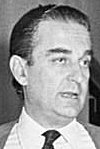28 October 1982 | |||||||||||||||||||||||||||||||||||||||||||||||||||||||||||||||||||||||||||||||||||||||||||||||||||||
All 350 seats in the Congress of Deputies and 208 (of 254) seats in the Senate 176 [a] seats needed for a majority in the Congress of Deputies | |||||||||||||||||||||||||||||||||||||||||||||||||||||||||||||||||||||||||||||||||||||||||||||||||||||
|---|---|---|---|---|---|---|---|---|---|---|---|---|---|---|---|---|---|---|---|---|---|---|---|---|---|---|---|---|---|---|---|---|---|---|---|---|---|---|---|---|---|---|---|---|---|---|---|---|---|---|---|---|---|---|---|---|---|---|---|---|---|---|---|---|---|---|---|---|---|---|---|---|---|---|---|---|---|---|---|---|---|---|---|---|---|---|---|---|---|---|---|---|---|---|---|---|---|---|---|---|---|
| Opinion polls | |||||||||||||||||||||||||||||||||||||||||||||||||||||||||||||||||||||||||||||||||||||||||||||||||||||
| Registered | 26,846,940 | ||||||||||||||||||||||||||||||||||||||||||||||||||||||||||||||||||||||||||||||||||||||||||||||||||||
| Turnout | 21,469,274 (80.0%) | ||||||||||||||||||||||||||||||||||||||||||||||||||||||||||||||||||||||||||||||||||||||||||||||||||||
| |||||||||||||||||||||||||||||||||||||||||||||||||||||||||||||||||||||||||||||||||||||||||||||||||||||
| |||||||||||||||||||||||||||||||||||||||||||||||||||||||||||||||||||||||||||||||||||||||||||||||||||||
A general election was held in Spain on Thursday, 28 October 1982, to elect the members of the 2nd Cortes Generales under the Spanish Constitution of 1978. All 350 seats in the Congress of Deputies were up for election, as well as 208 of 254 seats in the Senate.
Contents
- Background
- Overview
- Electoral system
- Eligibility
- Election date
- Parties and candidates
- Campaign
- Party slogans
- Events and issues
- Opinion polls
- Results
- Congress of Deputies
- Senate
- Maps
- Aftermath
- Outcome
- Government formation
- Legacy
- Notes
- References
- Bibliography
- External links
The election was called several months ahead of schedule by then Prime Minister Leopoldo Calvo-Sotelo, amid poor polling ratings and severe infighting within the ruling Union of the Democratic Centre (UCD) party, which had seen the splits of former prime minister Adolfo Suárez's Democratic and Social Centre (CDS), Óscar Alzaga's People's Democratic Party (PDP), and the Democratic Action Party (PAD) of former justice minister Francisco Fernández Ordóñez. Government instability, the effects of an economic downturn resulting from the 1979 oil crisis and spiralling violence from terrorist attacks had characterized the legislative term. Suárez himself had resigned as prime minister in January 1981, two coup attempts were thwarted—one during Calvo-Sotelo's investiture on 23 February 1981, and another one on election eve—and the administrative set up of the so-called "state of autonomies" saw the UCD becoming increasingly isolated, particularly following its failure in opposing Andalusia's bid to attain autonomy through the "fast-track" route envisaged in the Constitution. A toxic oil syndrome outbreak in 1981, whose origin was traced to the illegal marketing of contaminated rapeseed oil, further undermined the UCD's position. [1] [2] Calvo-Sotelo himself had chosen not to seek re-election, being replaced as party nominee by the president of the Congress of Deputies, Landelino Lavilla.
The opposition Spanish Socialist Workers' Party (PSOE) led by Felipe González was able to present itself as a viable government alternative in the years going into the election, having renounced Marxism as an ideology in a party congress held in 1979, and achieving a political stunt through the tabling of a motion of no confidence in May 1980 that allowed González to broadcast his political programme live. The People's Alliance (AP) of former Francoist minister Manuel Fraga pursued a "natural majority" strategy, aimed at uniting the Spanish right-of-centre electorate around his party by taking advantage of the UCD decline. Meanwhile, the Communist Party of Spain (PCE) under Santiago Carrillo underwent an internal crisis over both ideological and personal reasons that led to the expulsion of a number of relevant members.
Amid the highest voter turnout recorded in a general election in Spain as of 2026, the PSOE won the largest landslide victory since the Spanish transition to democracy—with an overall majority of 202 out of 350 seats in the Congress and over ten million votes—by running a mainstream modern social democratic campaign and appealing to political change. The UCD was decimated, losing 93% of its previous seats and roughly 80% of its vote, in the worst defeat for a sitting government in Spain and one of the worst defeats ever suffered by a governing party in the Western world. AP benefitted from the UCD collapse and became the main opposition party to the Socialists with 107 seats. Adolfo Suárez's CDS had a modest performance with two Congress seats, while the PCE plummeted as it suffered from tactical voting to the PSOE. González took office on 2 December, heading the first government in 43 years in which none of its members had served under Francoism.























